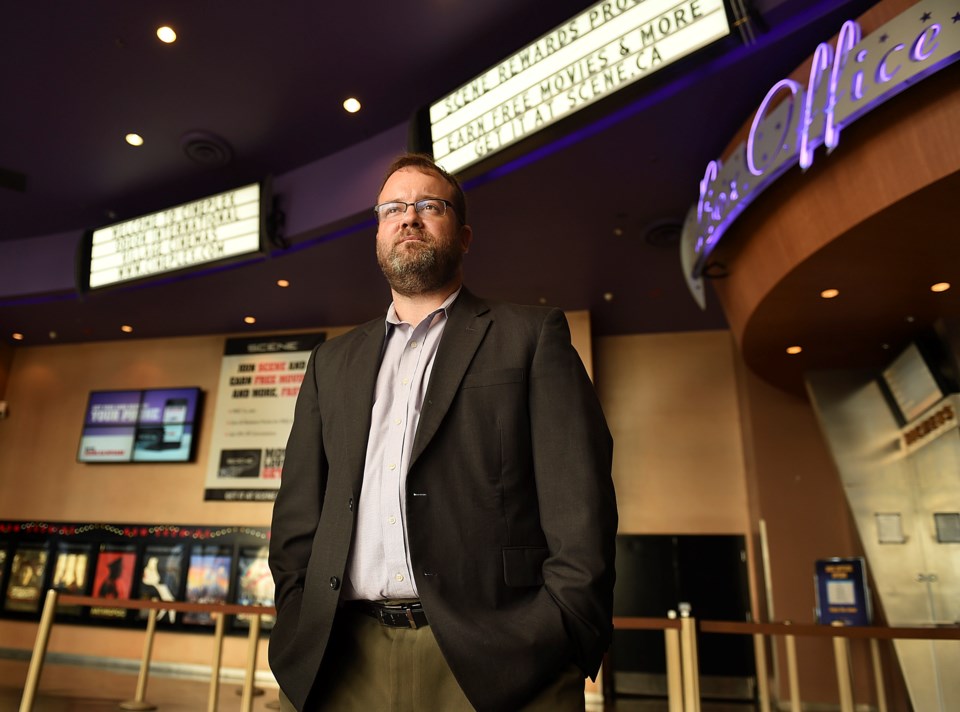The Big Lebowski may not seem like a film that is overtly about religion like, say, The Passion of the Christ or The Ten Commandments. But Jason Byassee finds a message for Christians and analogies with ancient religious figures in the Coen brothers’ film about the definitive slacker.
Byassee, who is a professor at the Vancouver School of Theology, is a former minister at a North Carolina church and, notably, spent a decade penning film reviews for the magazine The Christian Century. He got that gig when the editor told him that people who knew anything about movies didn’t know anything about God and vice versa. Byassee, who spent much of the ’80s watching movies and later was pursuing advanced religious studies, has found lots of messages about religion that filmmakers probably didn’t know were there.
In The Big Lebowski, Jeff Bridges plays The Dude, a slacker who rejects much of what North American culture tells us we should covet.
“The ancient monks and nuns rejected those things — especially money, sex and power — as competitors for their devotion to God,” Byassee wrote in his review of the film. “The Dude rejects money and power too. They simply don’t hold sway over him the way they do over most of us. Even his non-rejection of sex is interesting, for what he actually rejects is fatherhood.” The ancient religious, Byassee writes, rejected sex to avoid building a family empire that could aspire to “secular immortality.”
“The Dude is not interested in any of that either. He just wants to roll,” Byassee writes.
Even movies that he sees as “flagrantly irreligious or hostile to morality” can be seen as morality plays in their own right, he insists. Other genres, like superhero films, have more obvious comparisons.
“Clearly what a superhero movie or book is about is wanting someone to try to fix something we can’t fix,” he says, though he cautions that religion means more than that too.
Sports movies may not be overtly religious but often evoke values and rituals that can mirror faith. Hoosiers is about a small-town basketball team that beats the big boys and wins the state championship.
“The town doesn’t come off as particularly religious about God, more about basketball,” Byassee laughs. “But this seems [to be] about teamwork and becoming bigger than you could on your own.”
Still, despite devoting so much of his career to pondering religiosity in popular culture, he is ambivalent about the very pursuit of what he calls “popcorn theology.”
He believes there are things a person can gain from church attendance that they cannot from sitting in a theatre.
“I have a really high notion of the church. I think there are things that happen as part of the church that can’t happen anywhere else and so I’m reluctant to give that away to the Cineplex,” he says. “At the end of the day, Hollywood is a $1-billion business trying to manipulate us out of our money. I get that. Obviously, of course, others would say the church is that too, but anyway… You can go to the movies without having to learn how to love your enemy or feed the poor or become holier. You shouldn’t be able to get away with going to church without those things.”
Still, he adds, “I do think God is not above meeting us in the movie theatre where people are trying to tell a beautiful story well and trying to leave you, as the viewer, changed.”
As a Methodist minister who now teaches others how to preach, Byassee acknowledges his profession has stuff to learn from Hollywood.
“That is surprisingly like what I am trying to do when I preach: trying to tell a beautiful story well and leave [people] changed,” he says. “I guess what moviemakers are doing is what other storytellers and myth-makers are doing. They’re trying to give people something worth living by. You can tell when someone has done that. It’s an honouring of what it means to be human when someone tells a story well.”
When a story — in this case, a film — is not told well, we can get upset and not just because we’re out $20 and two hours.
“It’s a defilement of what it means to be human to tell a bad story,” he says. “It’s not just wasted time, it’s a defaced notion of humanity.”
Human beings, Byassee says, are animals that live by the story, “that want to take stock of how tragic and awful the world is and also say, by the end, all things shall be well.”
Is he suggesting humankind is going to have a Hollywood ending?
“Hollywood occasionally hints at an ending so glorious no human can imagine it, so whatever is good in Hollywood endings is only good because it hints at a thing that’s even better,” he says.
Even the act of human creation itself mirrors the opening verses of the Bible.
“In the Scriptures, God is one who creates everything with a word,” Byassee says. “God speaks and, bam, there are supernovas and lobsters and the Canadian Shield. There is some distant analogy between when we speak and create something that wasn’t there before or we draw or we tell a story or paint a painting or make a song. There’s some analogy between us creating something that wasn’t there before and God creating everything that is that wasn’t there before.”
@Pat604Johnson



